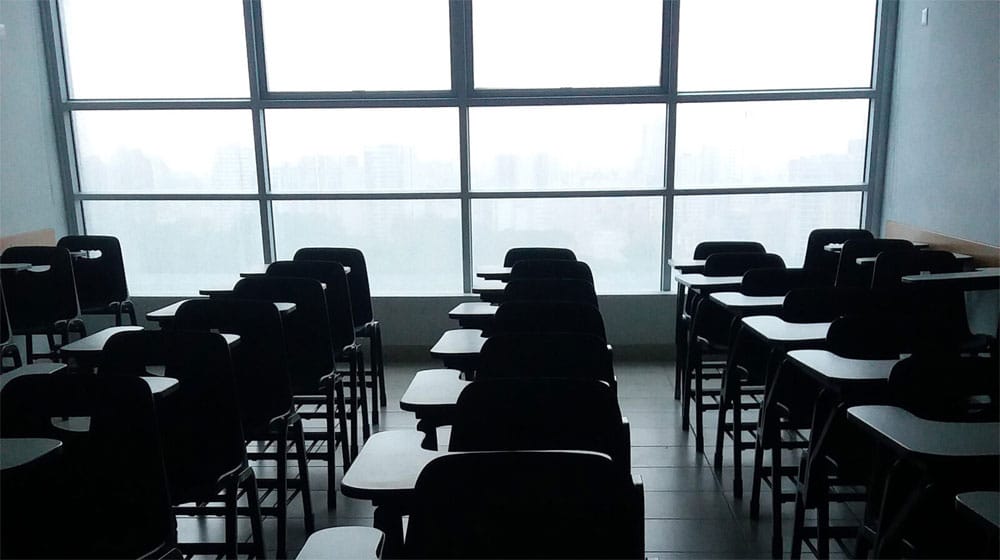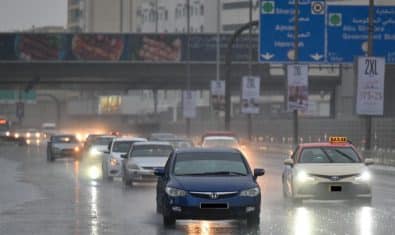The coronavirus pandemic in 2020 caused a huge setback to both Pakistan’s education sector and the people connected with it. Although the fact that the education sector constitutes a major chunk of the economy went unnoticed, now that the sector has been hit severely, its vitality has finally come to center stage.
For the first time in the history of the country, over five million educational institutions remained closed for eight consecutive months, resulting in serious academic and financial losses.
Here is how the different factions of this sector have been affected by the pandemic:
Students
Students’ lives changed drastically because of the pandemic despite many being unable to realize this amid celebrations of not having to go to their institutes as the entire mode of teaching and assessments went online.
The major problem with this transition is that not all students have access to the internet as some cannot afford it, while many residents of the remote areas of Balochistan, Gilgit Baltistan, Khyber Pakhtunkhwa, and Sindh, have poor internet.
ALSO READ
NUML Students Stage a Massive Protest Against On-Campus Exams
A large number of students from remote areas had to return home when their colleges and universities closed their hostels. Most of their residential areas lack 4G, which had rendered their chances of downloading videos abysmal, let alone live streaming a lecture or uploading heavy assignment files.
Numerous students are still unable to benefit from online lectures and have undergone an unprecedented transition from brick-and-mortar classrooms to virtual lectures.
Long hours of load shedding, flash floods, and unfavorable learning environments at home have not made this transition convenient. Despite some authorities facilitating recording online sessions for students who cannot stream live sessions, the overall hassle has been too much for the average student.
Moreover, between rushing to cover an extensive syllabus and having wasted a lot of time waiting for things to return to normal, adapting to ‘the new normal’ has been quite different for higher education students and school students. Ultimately, the concept of distance learning began to equate to self-learning and led to the opposition of online classes.
Things became more difficult as teachers were found lacking the positive attitude required to make online classes interactive. While students enjoyed a certain degree of anonymity while posing difficult questions, teachers could not resort to the practice of dismissing unconventional ideas as rude. Additionally, many teachers have been overburdening students with assignments in a push for theoretical learning, and their suspicions of students slacking off have been another reason behind their heavy assignments.
Moreover, school students were promoted to the next classes without examinations while college and university students had to attempt online examinations. The core issue with online examinations is that it allows for cheating. Many university students complained that they had been robbed of their deserved grades by students who had cheated in the exams, in addition to the genuine issues of internet connectivity and power outages.
Teachers
The other major victims of the pandemic have been teachers, and the last few months have not been easy for them either. There used to be a time when teachers would ensure ‘pin-drop silence’ in class, but with this new normal, they have been desperate for students to interact more.
Many teachers have had to arrange for the paraphernalia of online classes on their own. Some (mostly seniors) had to first learn how to use the online class systems or conferencing software, and then teach their classes. In addition to this, they have been under immense pressure to cover the syllabi and teach in a fulfilling manner.
Teachers have also had trouble with inadequate internet speeds, and many still come to their institutions to record their lectures while putting themselves and their families at the risk of contracting the virus.
The education sector and the teachers in the private sector, in particular, have had to weather financial crunches. While some government teachers reported delays in their salaries, private institute teachers had their salaries slashed. The administrations of many schools, colleges, and universities had announced 20 to 50 percent cuts in their teachers’ salaries, and put their faculty members under financial strain.
Parents
There is no question that the online mode of learning has been a financial burden on students’ parents as well. They have had to arrange for devices for all of their children and sign up for internet services for their online classes. They have also had to supervise their children’s study sessions as teachers cannot oversee their tasks and assist them with their projects. Therefore, in the case of the junior students, half of their teachers’ duties have automatically been delegated to the parents.
Apart from supervising online classwork, parents have still had to assist their children in their homework. Many of these parents have already had to work from home, which is quite difficult with their added responsibilities and having the children around 24/7. Similarly, the work of stay-at-home mothers has also doubled as they have to cater to their family’s needs around the clock.
Government
The education departments had to overcome a plethora of challenges when the country went into lockdown during the raging pandemic. Schools were closed in March 2020 and the government faced the dilemma of choosing to either save lives from the plague or to prevent disruptions in the students’ education.
While online education was chosen as a modem, many students continued to be deprived of it. Internet access stands at 36 percent, smartphone users at 32 percent, and computer ownership at 27 percent across the country. The rest of the students had to be given another medium and the federal ministry chose to air lectures on television.
After the Ministry of Federal Education and Professional Training (MoFEPT) launched an education TV program called ‘TeleSchool’, the government of Punjab followed suit and launched ‘Taleem Ghar’ for the junior students to facilitate remote learning. Both these programs are available on the websites, YouTube channels, and mobile apps of the broadcasting TV channels.
The Higher Education Commission
The HEC’s funds took a hit during the lockdown. With its already meager budget following a recent major cut, things became difficult when its sources of revenue dried up. It used to earn from attestation fees, registration fees, payments for students’ theses, and other accounts, but as educational institutions were shut down and the prospects of both jobs and scholarships diminished, the HEC began to lack running sources of income.
Other accounts faced the same challenge as the commission did not have enough funds to facilitate universities with online classes owing to the budget cuts. Nonetheless, it assisted institutions in any way it could and rose to the occasion of facilitating online courses. Where it once had an online facility for just 23 courses before the pandemic, it is now offering 113,617 out of 118,331 courses online.
Educational Institutes
This last year was not an easy one for educational institutions. With schools and colleges being closed for several months, only to be reopened virtually, they continue to suffer significant losses.
Private Institutions
While their earnings have dipped significantly, private institutions have still had to pay for utilities, wages, and salaries. They have also had to give fee concessions to the students, and many of them had been directed to do so by the government. Their expenditures also increased because of subscriptions to video conferencing software and learning management systems, and investments in studios and high-quality gadgets to record lectures.
ALSO READ
US Announces Malala Yousafzai Scholarship Act For Pakistani Women
Public Institutions
Public schools and colleges also grappled with payments of dues as the government did not release their funds, which resulted in delays in salaries. This prompted the affected employees to go on strikes. The situation was no different for public universities that are struggling with funds and have to spend more on online education.
Adjacent Businesses
The crises caused by the pandemic brought to light how many people’s (other than teachers and academic institutions’ staffs) livelihoods are attached to the education sector. Hostels have been dealt a severe blow as students returned to their hometowns due to the closures of colleges and universities. Drivers, canteen owners, street vendors, and stationery shop owners have also been undergoing a similar economic crunch because students have not been in need of their services like before.


























